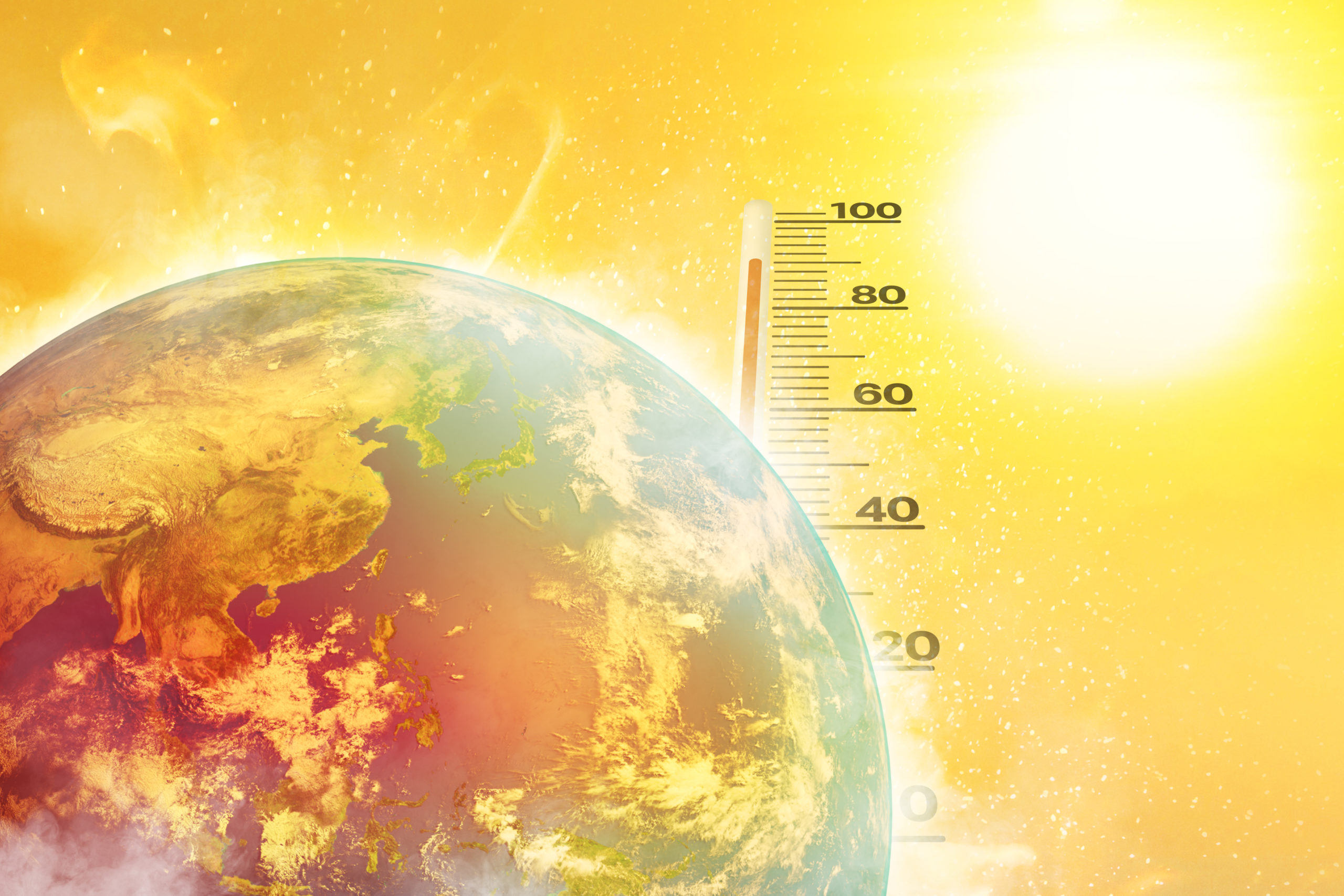Original article (in Slovenian) was published on 19/09/2022
In an interview for the portal Demokiacija.si on 26 August, Rafael Mihalich, a tenured professor and head of the Laboratory for Electric Power Supply at the Faculty of Electrical Engineering, University of Ljubljana, was asked why he thought the concept of a zero-carbon society was nonsense. “The trend of global temperatures has not been on a warming trajectory for 17 years,” he said.
Global temperatures are monitored by multiple international weather centers. According to Berkeley Earth, a US non-profit, the Earth warmed by 0.9 degrees Celsius by last year compared to the average global temperature between 1951 and 1980. In the past 17 years, the average global temperature rose by 0.34 degrees Celsius.
Berkeley Earth calculates the global average temperature by processing data from weather stations on land and on the sea surface. Last year the average monthly temperatures were measured for Berkely Earth by about 18,800 stations. The data on average temperatures at the surface of the sea is collected by the Met Office Hedley Centre in the UK.
The US National Oceanic and Atmospheric Administration (NOAA) stated in its report for 2021 that the Earth has been warming by 0.18 degrees Celsius every decade since 1981. This is 0.1 degrees above the temperature increase between 1880 and 1980.
Ziga Zaplotnik, a research assistant at the Chair of Meteorology at the Faculty of Mathematics and Physics, University of Ljubljana, explained that average global temperature is not a good measure of how global warming affects humanity. “We live on land, and temperature on land was 1.7 degrees Celsius above pre-industrial levels last year.”
“The claim that temperature measurements have not been showing warming for 17 years is false,” he told Razkrinkavanje.si, noting that the growth in average global temperature between 2000 and 2012 had indeed been minimal. “During this time the oceans absorbed heat at an accelerated pace, especially the tropical Pacific.”
Zaplotnik cited the international journal Nature, which explained in 2014 that the average temperature in 2012 was 0.1-0.2 degrees Celsius lower than expected due to a phenomenon called the global warming hiatus, a period of relatively minor changes in average global temperature.
In this year’s report on the state of the climate, the International Panel on Climate Change (IPCC) stated that growing concentrations of greenhouse gasses were the main cause of global warming. “The impact thereof is slightly moderated by humanity’s other impacts, for example, sulfate aerosols and change in land use, which has slightly increased the Earth’s radiant heat reflectance,” Zaplotnik summed up the report.
The goal of the signatories to the Paris Agreement, Slovenia included, is to keep global warming below two degrees Celsius compared to the preindustrial age. The signatories will endeavor to keep warming below 1.5 degrees Celsius. In its 2018 report on global warming, the IPCC stated that the half-degree difference will significantly impact biodiversity and ecosystems.
Mihalich’s claims for Demokracija elicited a response from five University of Ljubljana professors. In a rebuke published by the university on its website, they dismissed his claim that the trend of global temperatures has not been on a growing trajectory for 17 years. They explained that global temperatures are growing, a claim they backed up by invoking the Berkely Earth data.
The claim by Rafael Mihalich that the trend o global temperatures has not been on a growing trajectory for 17 years is false.



